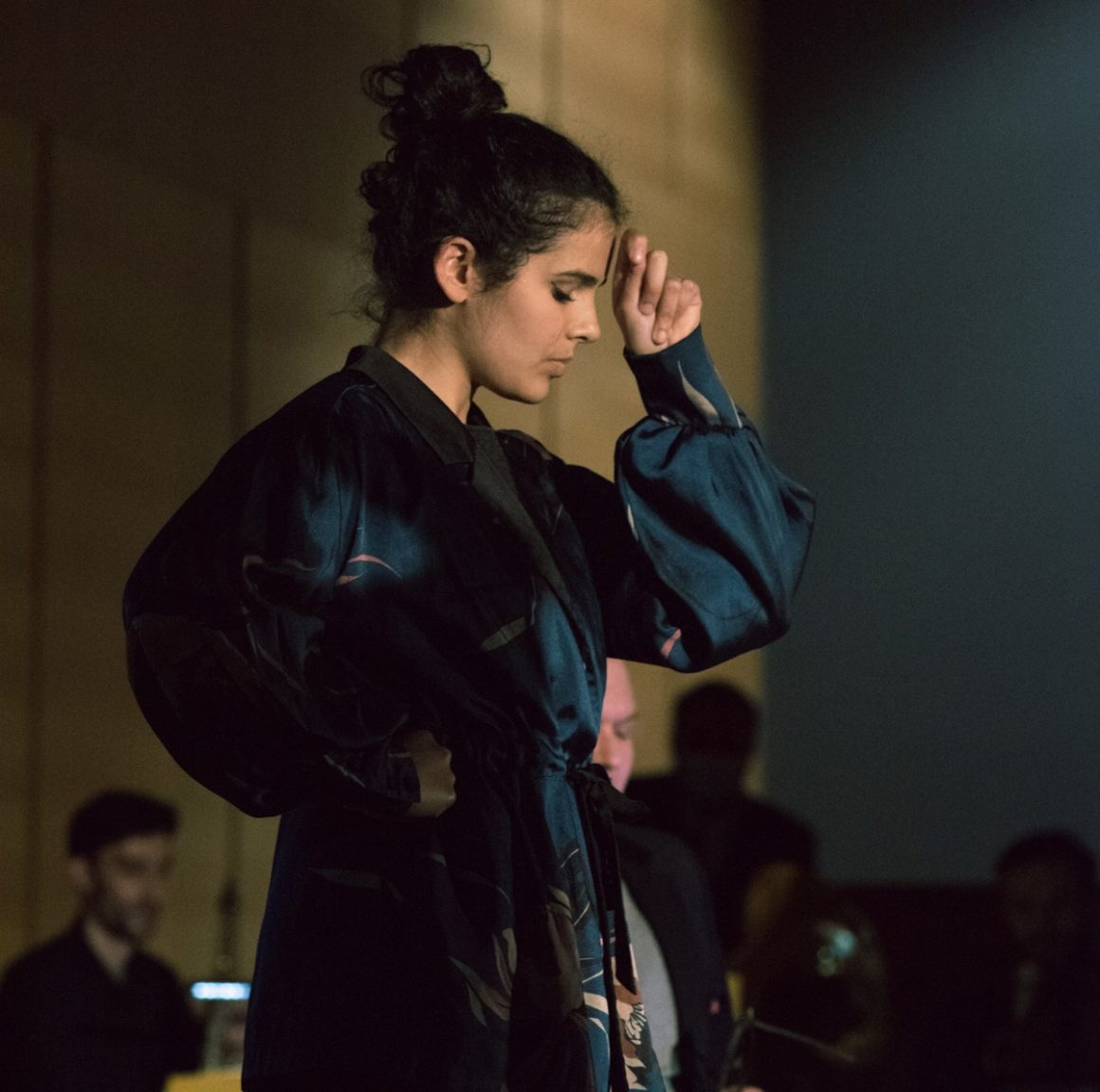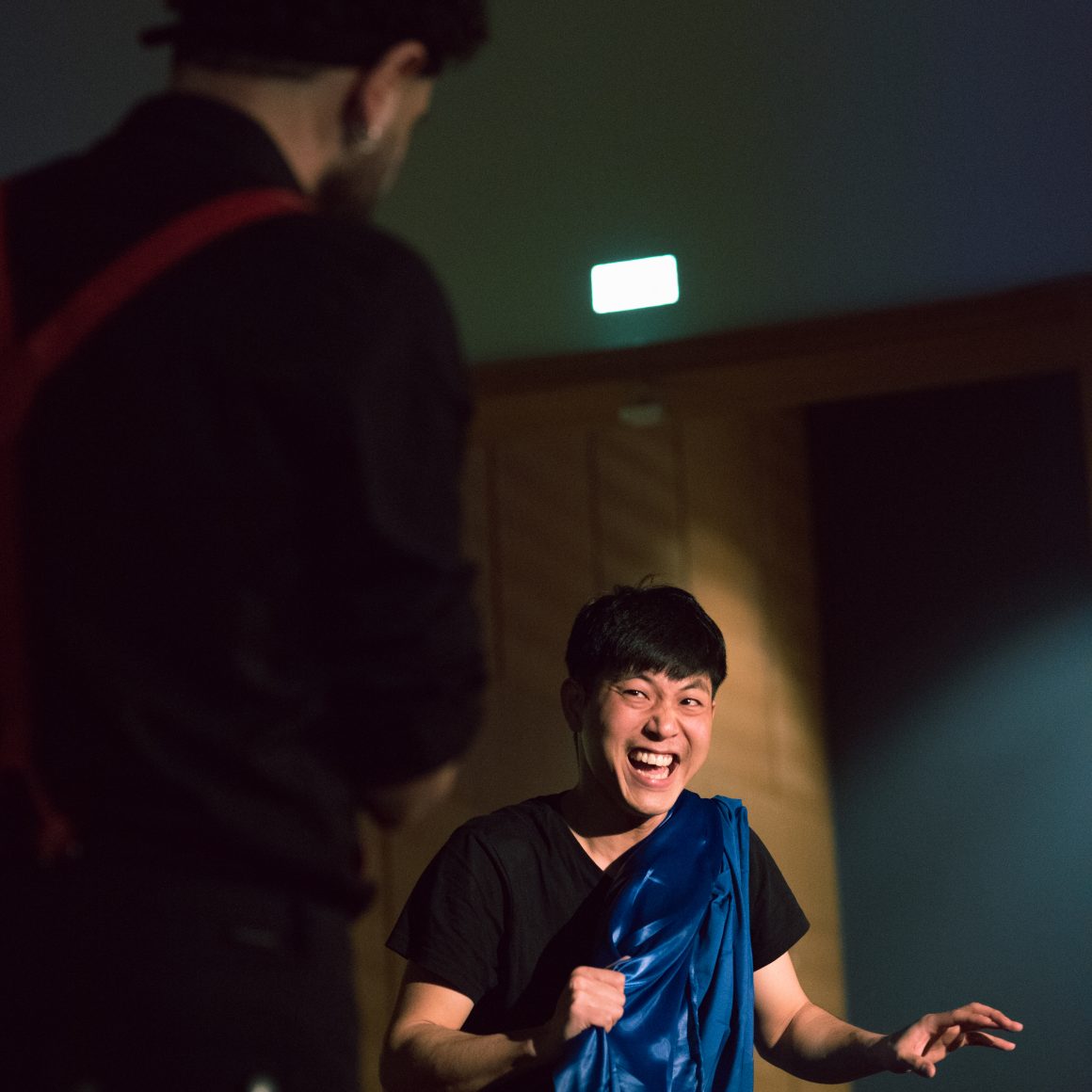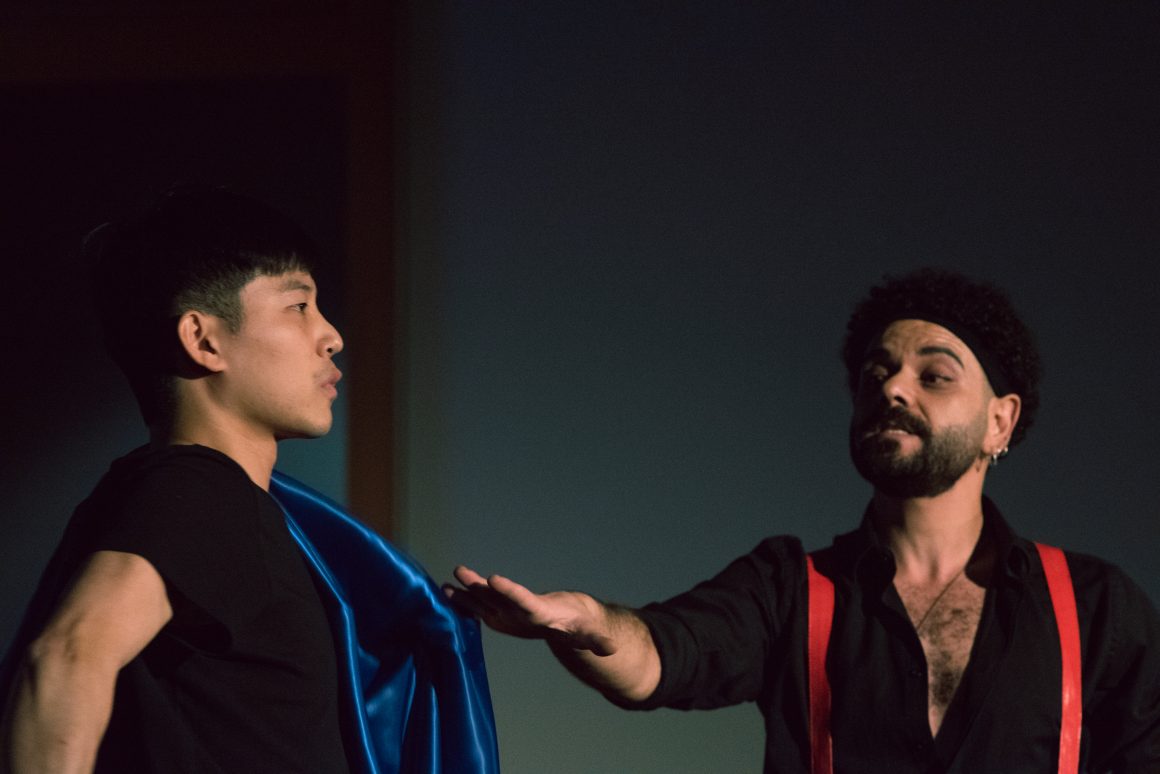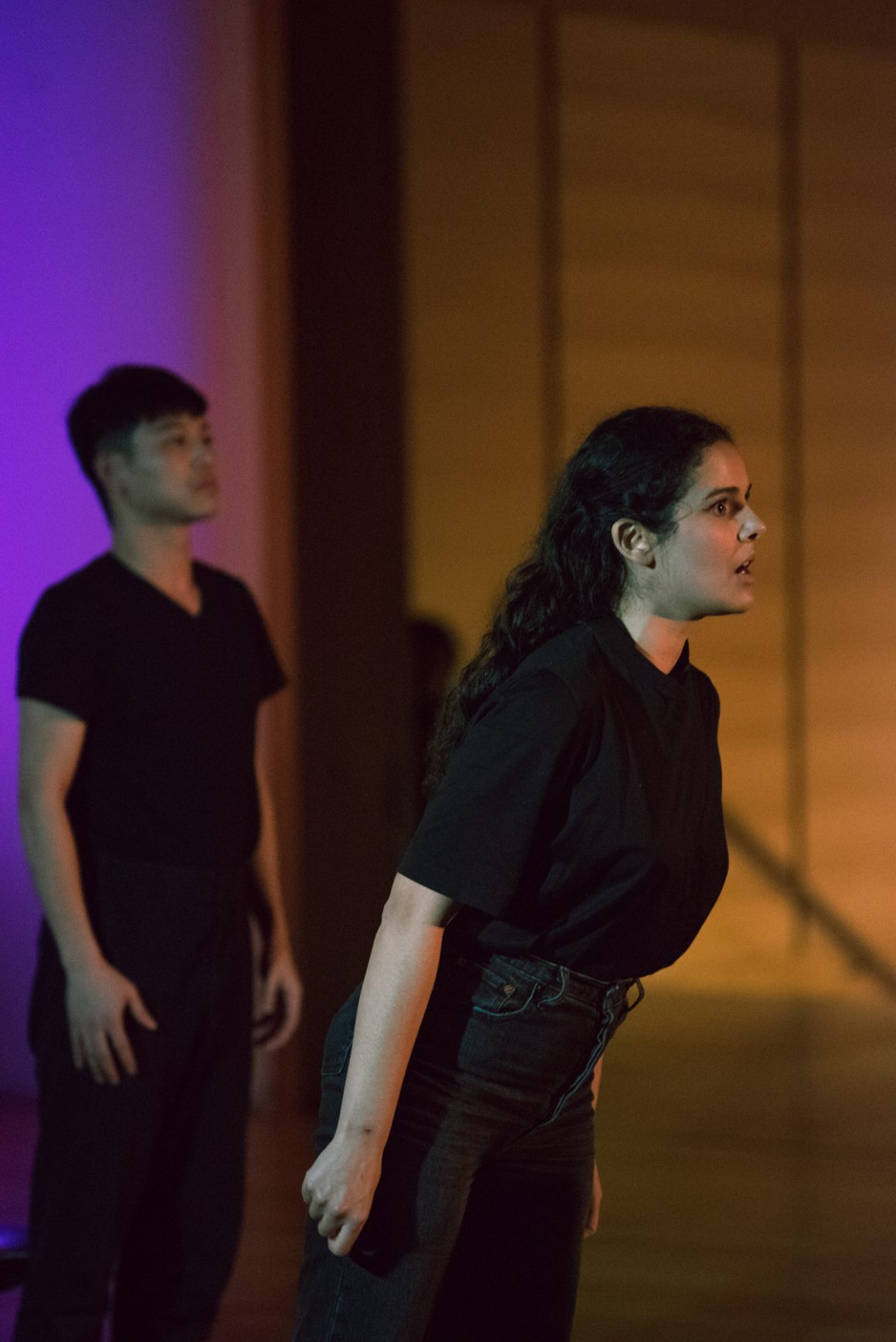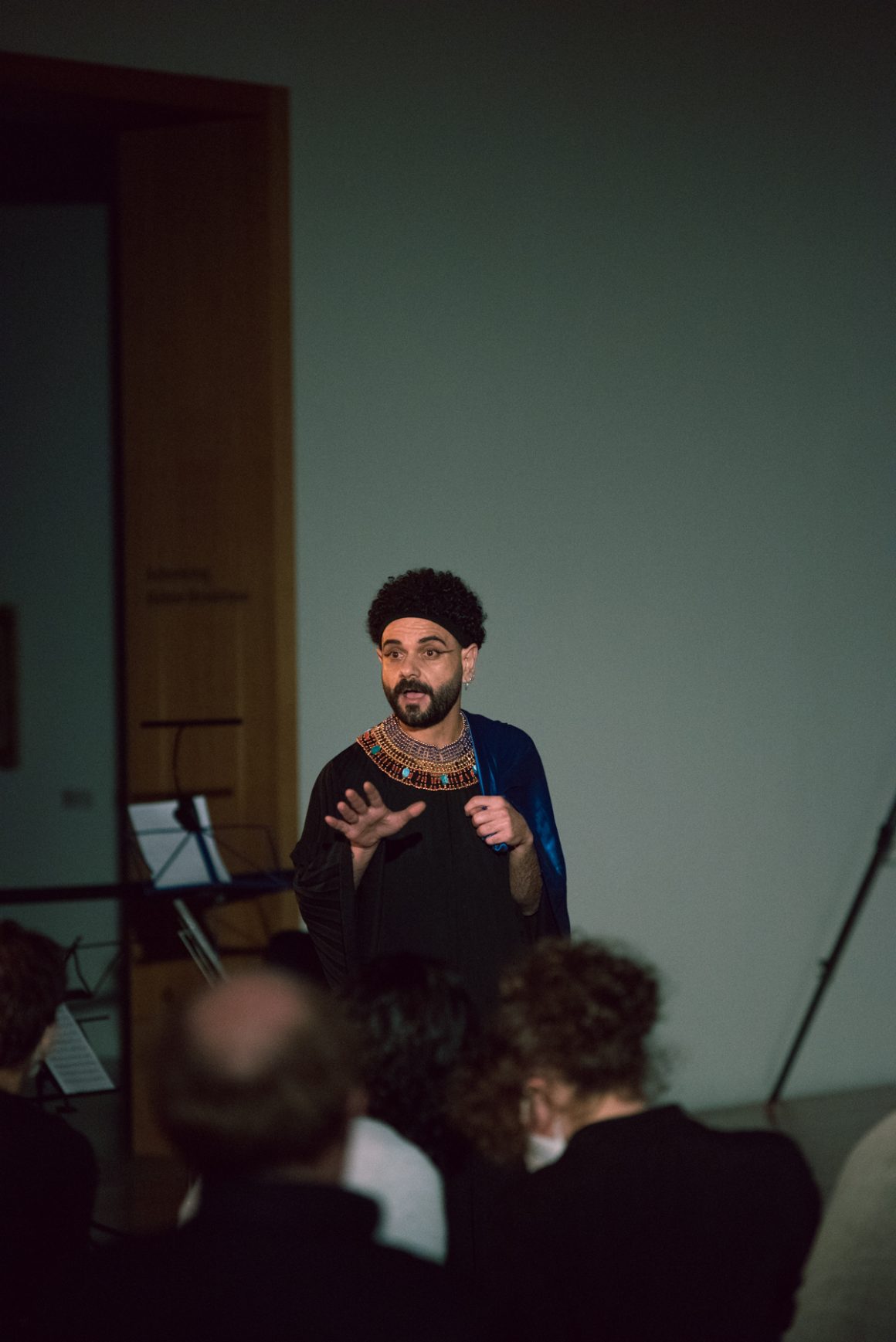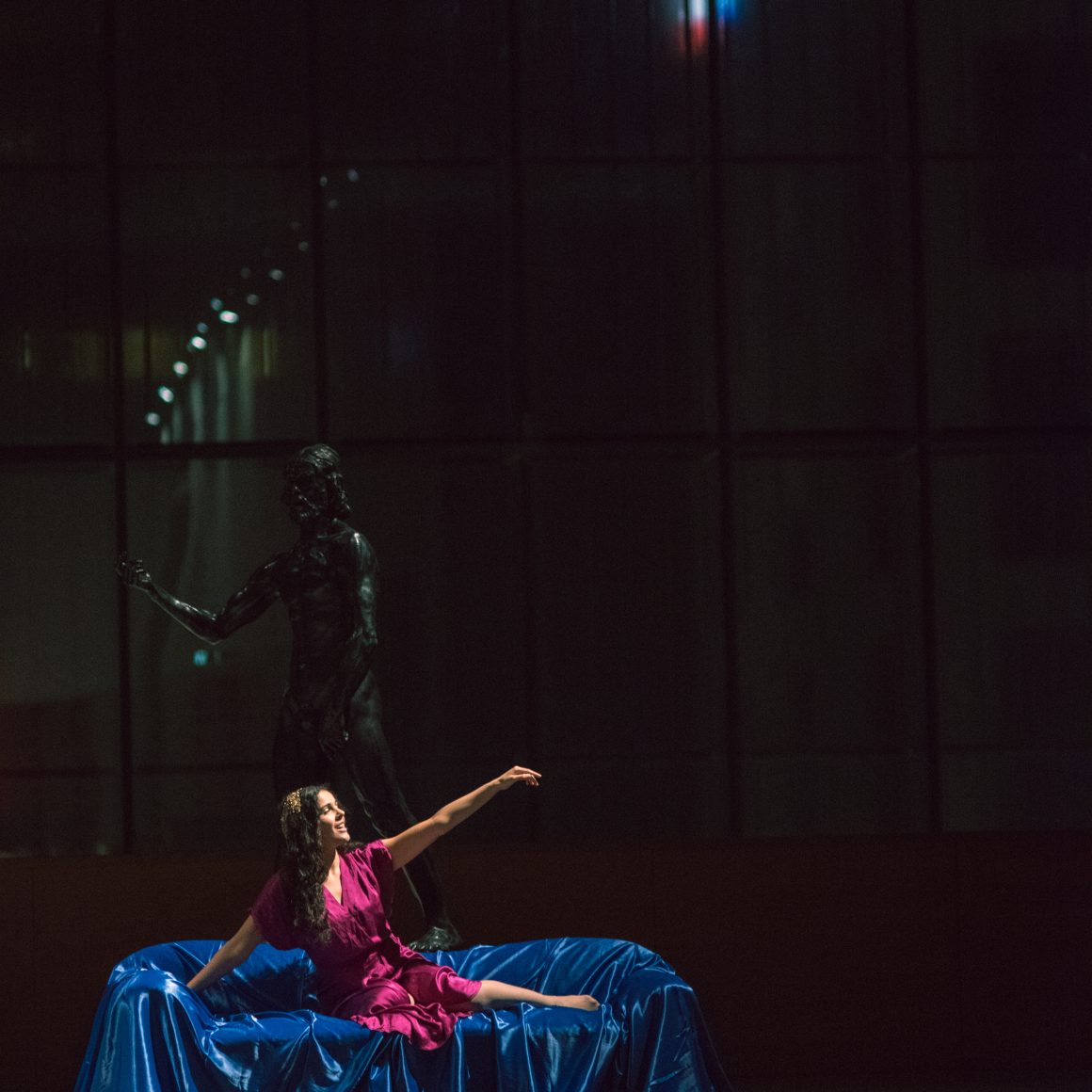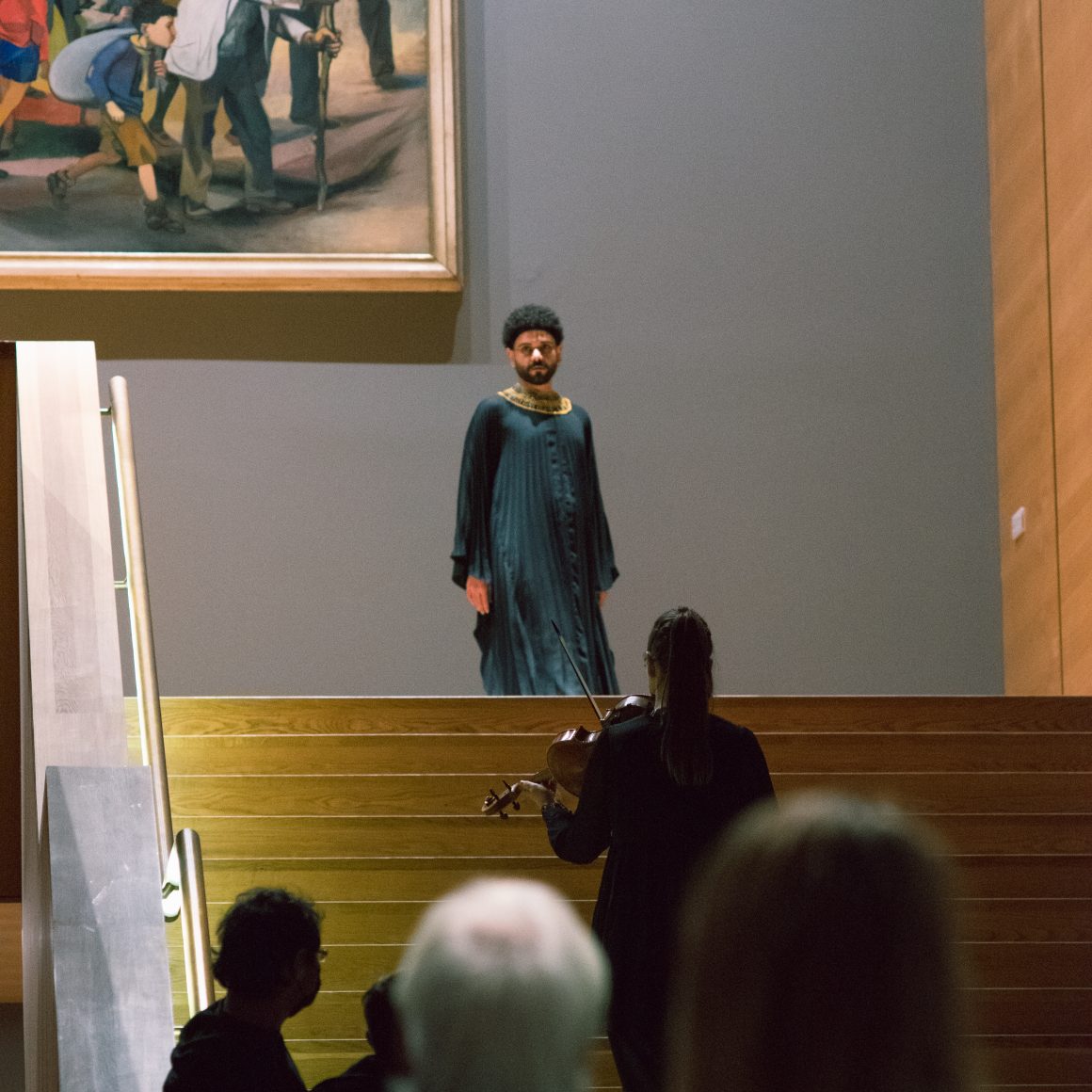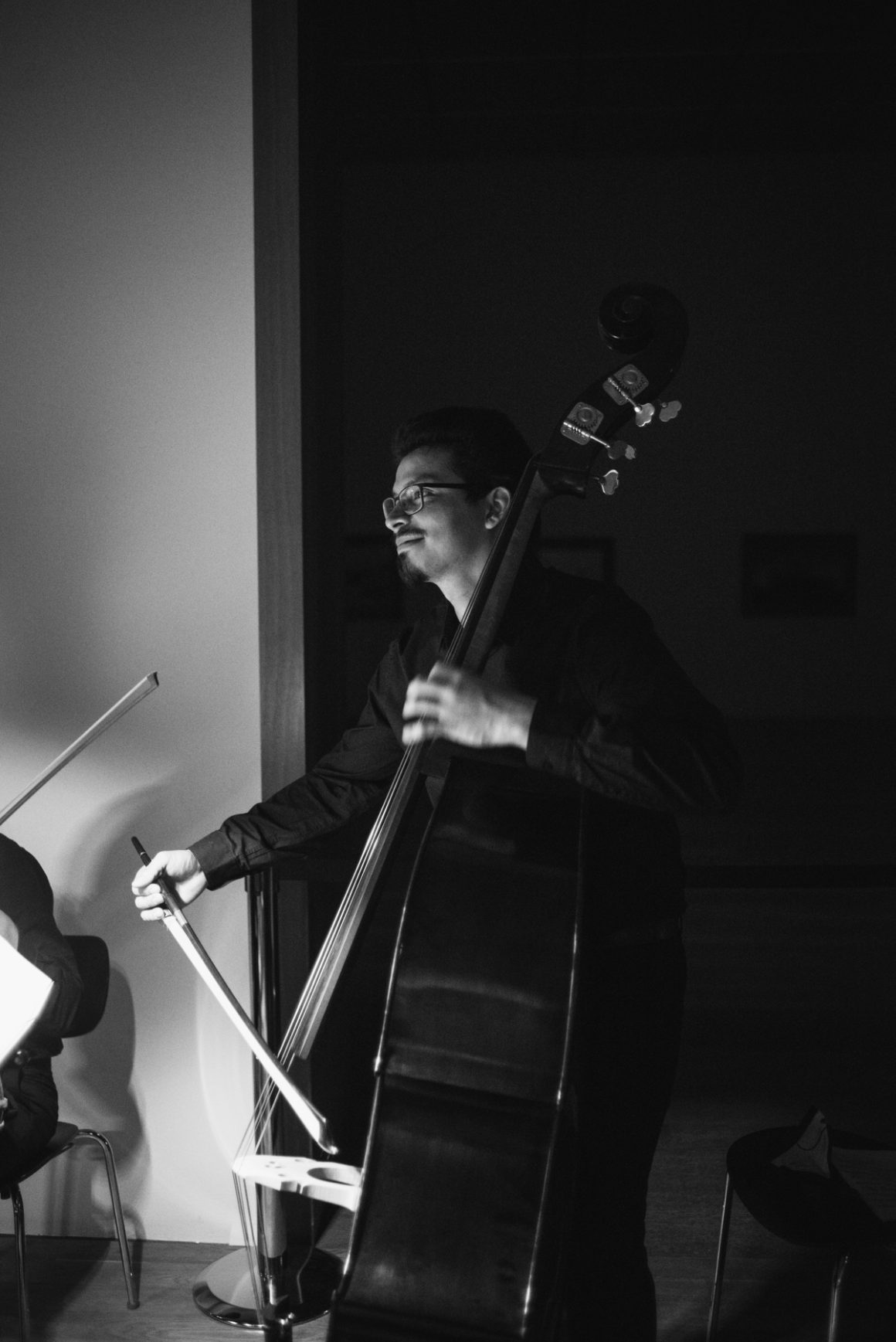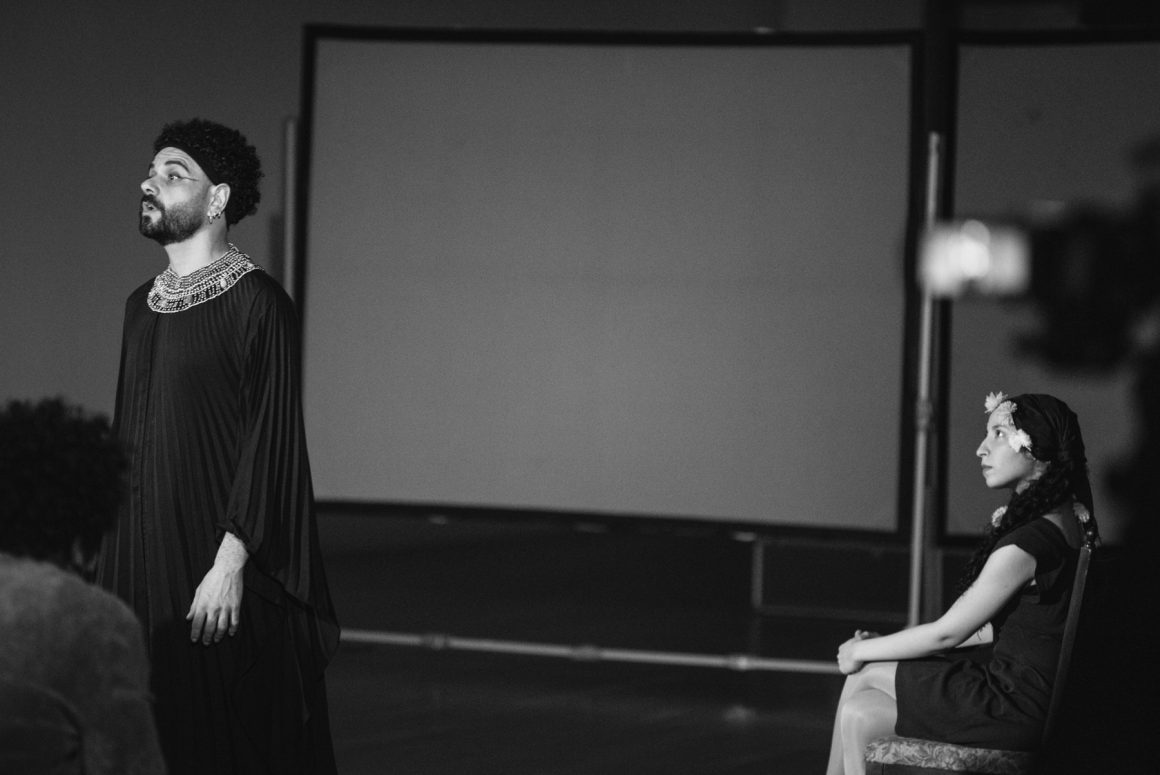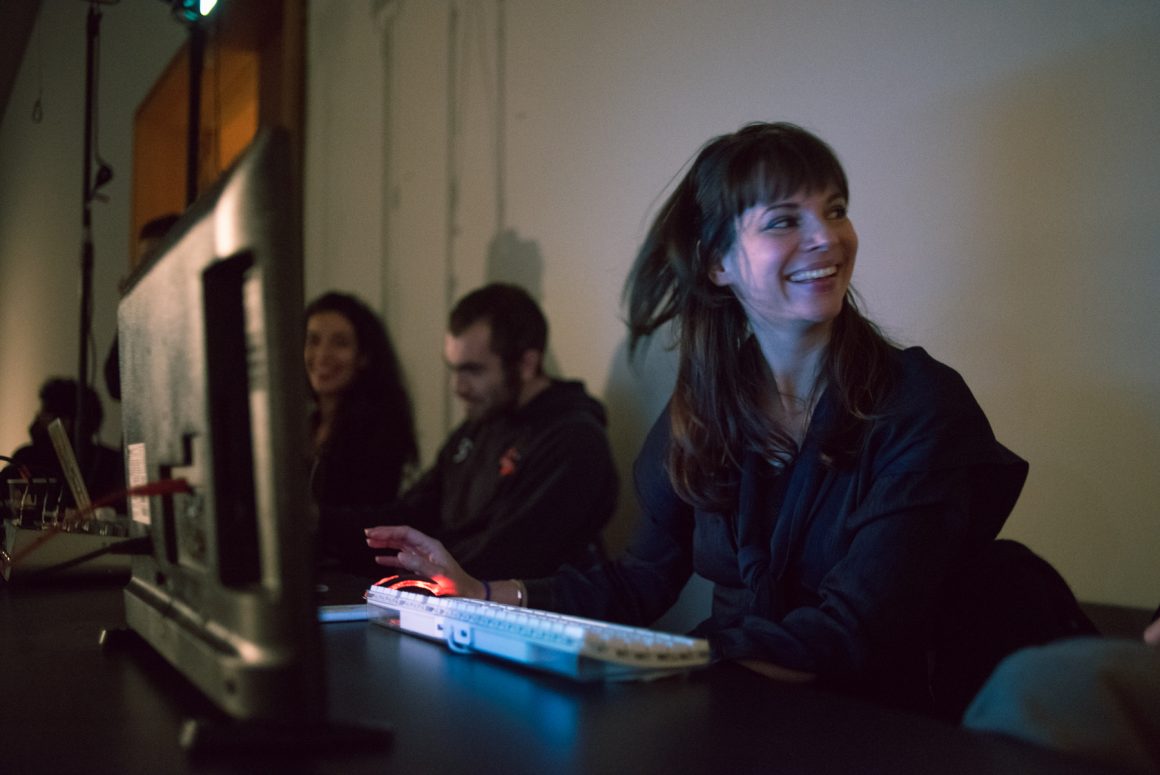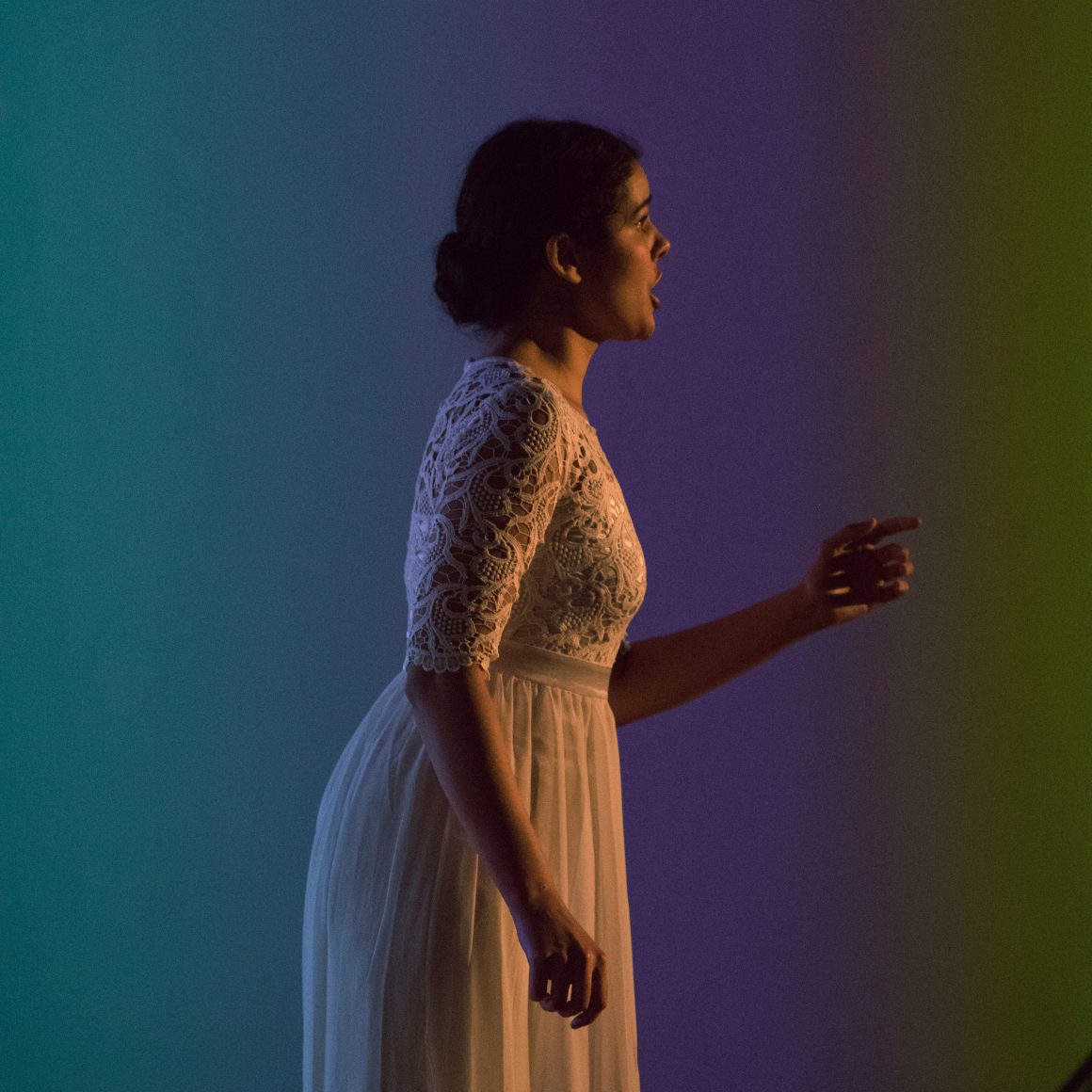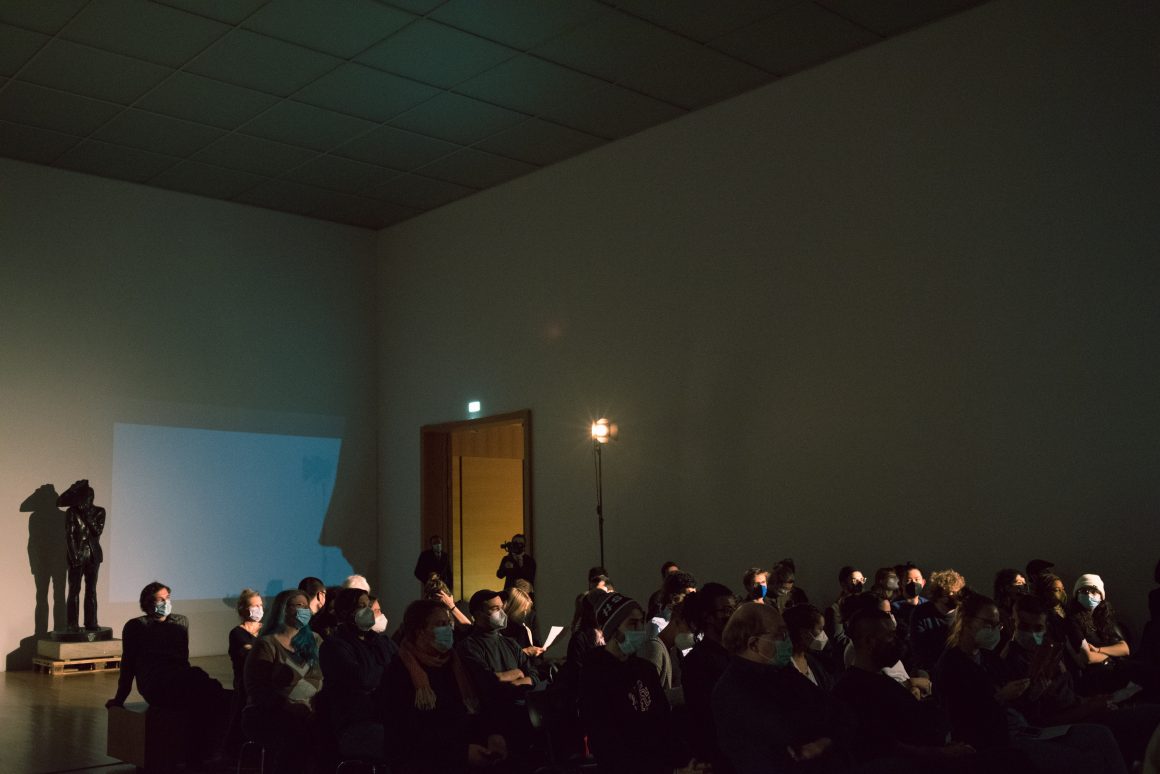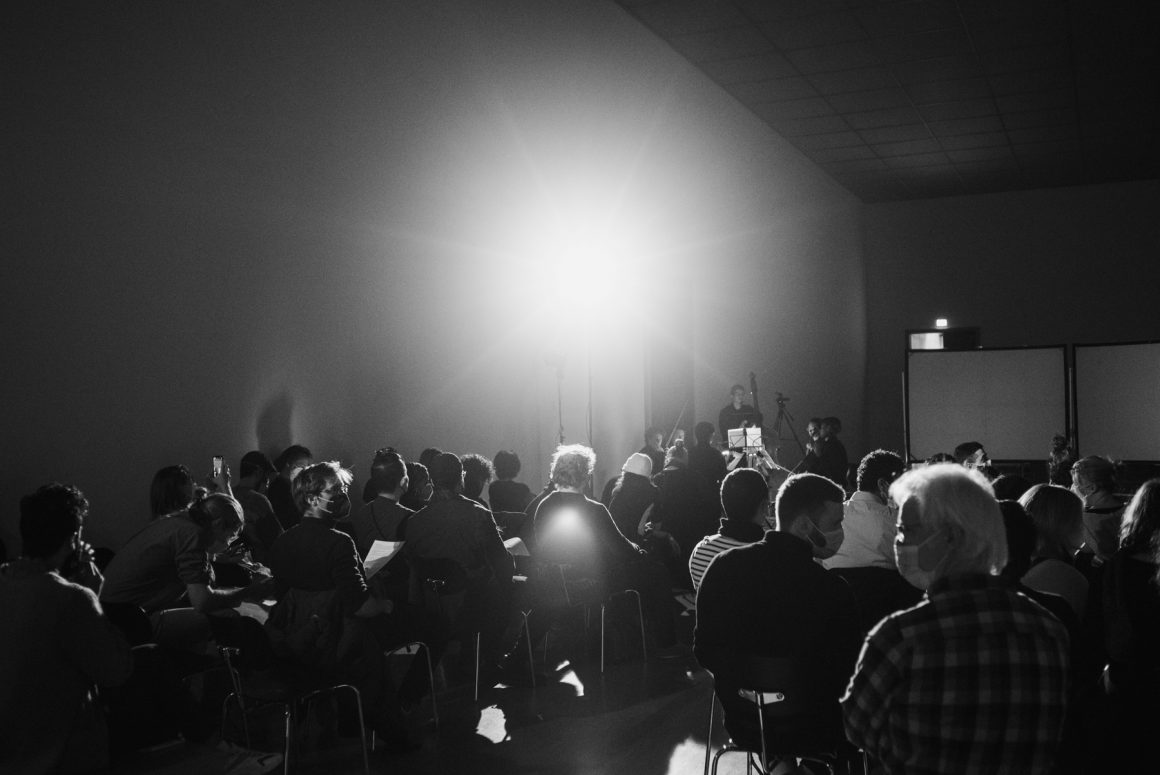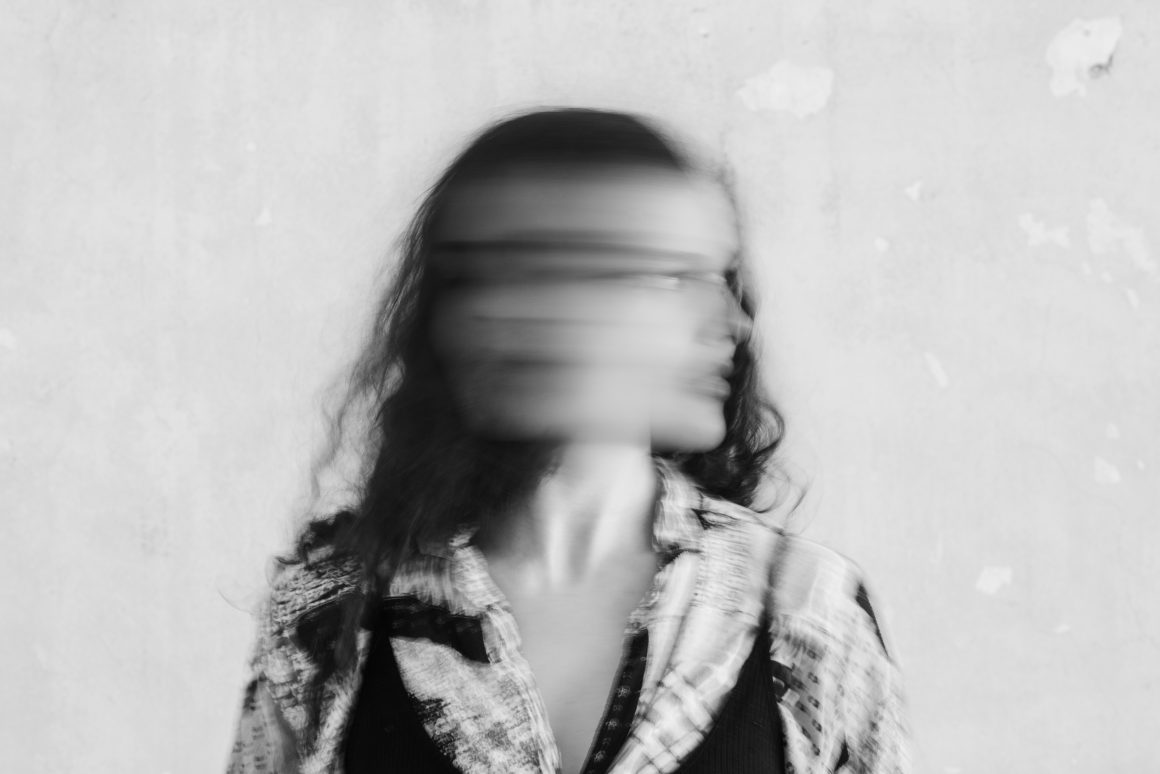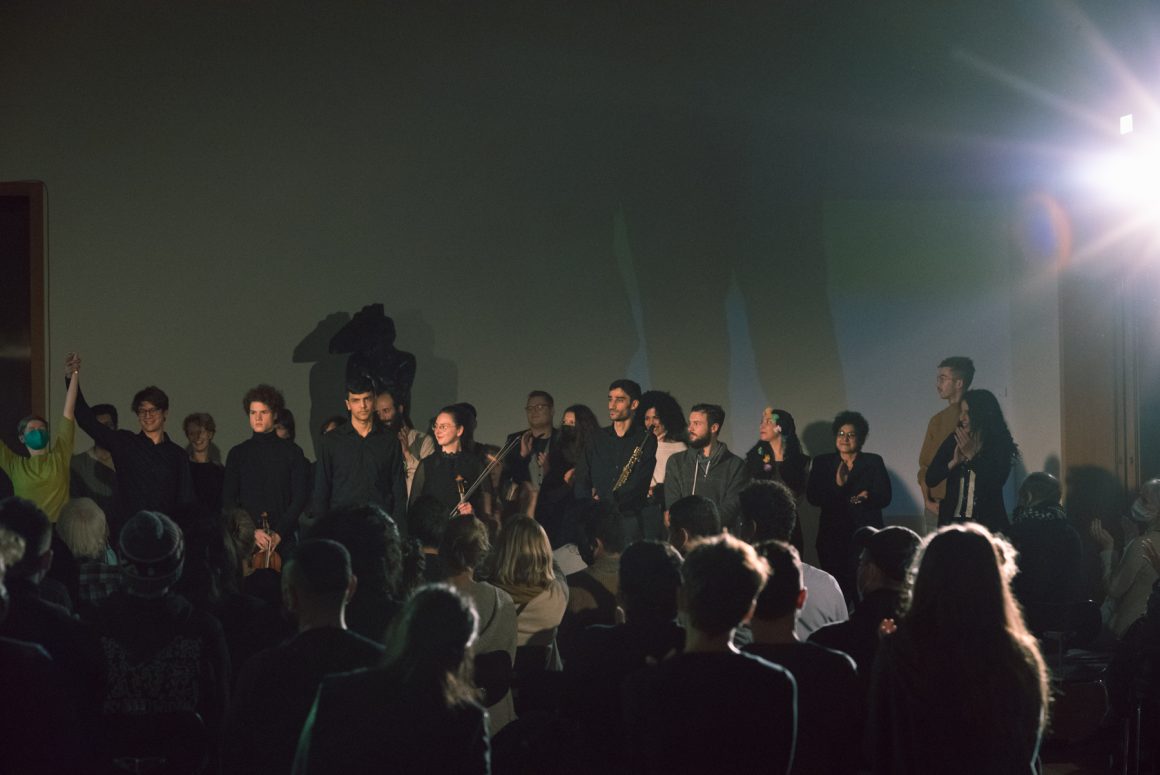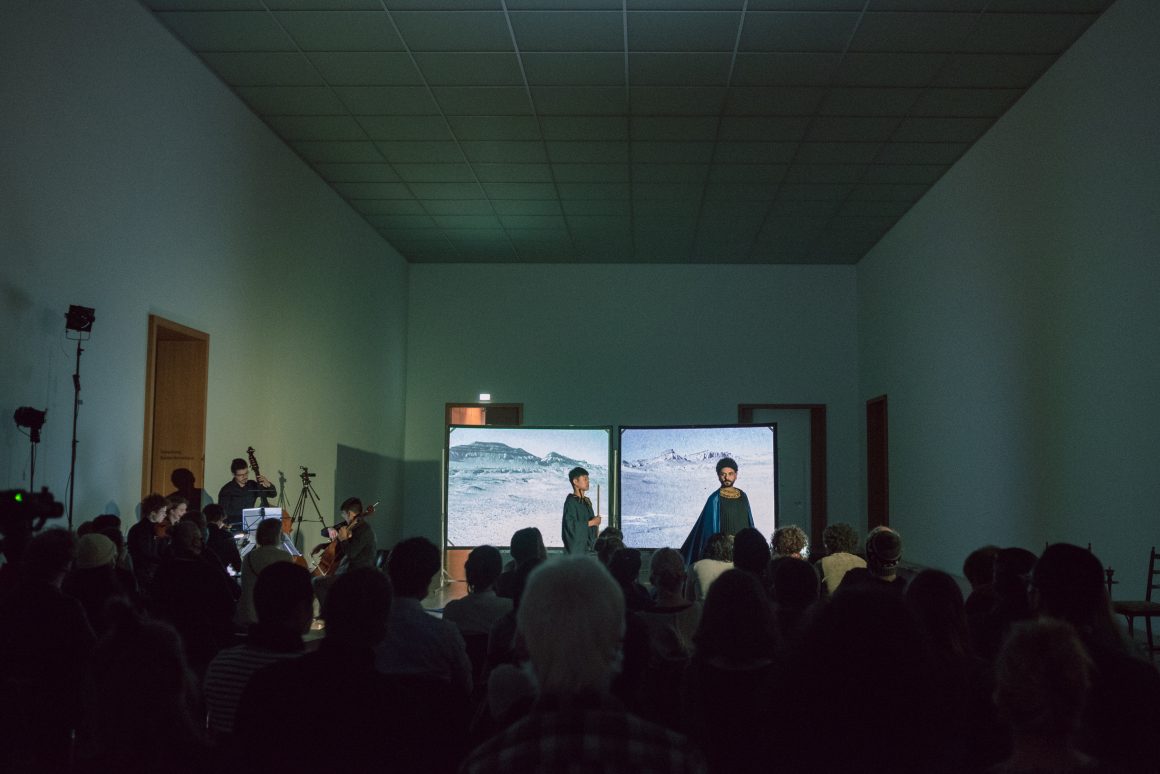Scroll down for English
DE: In wohl keiner anderen Kultursparte halten sich stereotype, exotisierende und rassistische Darstellungen und Narrative so hartnäckig wie in der Oper. So wird etwa die äthiopische Prinzessin Aida in der gleichnamigen Oper von Giuseppe Verdi bis heute regelmäßig mit Blackfacing dargestellt. Den Kompositionsauftrag bekam Giuseppe Verdi im Rahmen der Eröffnung des Suezkanals, sodass auch der Kontext der kolonialen Verhältnisse der Zeit zum Nachdenken anregen könnte. Genau das haben das Leitungsteam Damian Ibn Salem, Neam Tarek und Eva Morlang getan und haben eine Musiktheater-Produktion auf die Beine gestellt, die sich an dem Stoff abarbeitet. Damian Ibn Salem und Neam Tarek haben künstlerisch Fragmente aus Verdis „Aida“, die Kammeroper „Radames“ von Péter Eötvös sowie klassische ägyptische Musik und Poesie zu einem Gesamtkunstwerk verwoben, umrahmt mit Videokunst von Eliza Goldox.
Klassische Helden gibt es in „Ayda“ nicht. Niemand ist in einer klaren Opferrolle, niemand ist richtig frei. Ayda ist weder Prinzessin noch Sklavin, sie ist komplex: sexy, stark und kämpferisch, gleichzeitig traditionell. Wir erleben Versionen der Ayda in verschiedene gesellschaftlichen Klassen und verschiedenen Jahrhunderten, so etwa zur Zeit der ägyptischen Revolution 1952.
In einer weiteren Ebene des Stücks wird thematisiert, wie die mitteleuropäische Hochkultur mit außereuropäischer Kultur umgeht und sich diese aneignet. Dazu erklingt etwa ein Lied aus Maurice Ravels „Shéhérazade “. Edward Said beschreibt in seinem einflussreichen Buch Orientalismus als theatral: der Orient ist eine Bühne, auf die der ganze Osten reduziert wird. Die Figuren auf dieser Bühne haben die Rolle, das große Ganze zu repräsentieren. Die Sphinx, Cleopatra, Isis und Osiris, der Flaschengeist – Figuren, die von jeher Stoff für Geschichten und Projektionen waren, und Stereotype hervorbrachten, auf die bis heute Menschen reduziert werden. Ein Lied aus der Operette „Shahrazad“ des ägyptischen Komponisten Sayed Darwish wird dem gegenüber gestellt. Das Stück würde im November 2021 in der Museum der Bildenden Kunst Leipzig uraufgeführt.
EN: There is probably no other cultural genre in which stereotypical, exoticising and racist representations and narratives are as persistent as in opera. For example, the Ethiopian princess Aida in the opera of the same name by Giuseppe Verdi is still regularly portrayed with blackfacing. Giuseppe Verdi was commissioned to compose the opera when the Suez Canal was opened, so the context of the colonial conditions of the time could also be thought-provoking. This is exactly what the management team Damian Ibn Salem, Neam Tarek and Eva Morlang have done and have put together a music theatre production that works through the material. Damian Ibn Salem and Neam Tarek have artistically interwoven fragments from Verdi’s “Aida”, the chamber opera “Radames” by Péter Eötvös as well as classical Egyptian music and poetry into a total work of art, framed with video art by Eliza Goldox.
There are no classical heroes in “Ayda”. No one is in a clear victim role, no one is really free. Ayda is neither princess nor slave, she is complex: sexy, strong and combative, traditional at the same time. We experience versions of Ayda in different social classes and different centuries, for example at the time of the Egyptian revolution in 1952. Another level of the piece deals with how Central European high culture deals with non-European culture and appropriates it. For example, a song from Maurice Ravel’s “Shéhérazade” is played. In his influential book, Edward Said describes Orientalism as theatrical: the Orient is a stage onto which the entire East is reduced. The figures on this stage have the role of representing the greater whole. The Sphinx, Cleopatra, Isis and Osiris, the genie – figures that have always been material for stories and projections, and produced stereotypes to which people are reduced to this day. A song from the operetta “Shahrazad” by the Egyptian composer Sayed Darwish is juxtaposed with this. The piece was premiered in Museum of Fine arts Leipzig November 2021.

